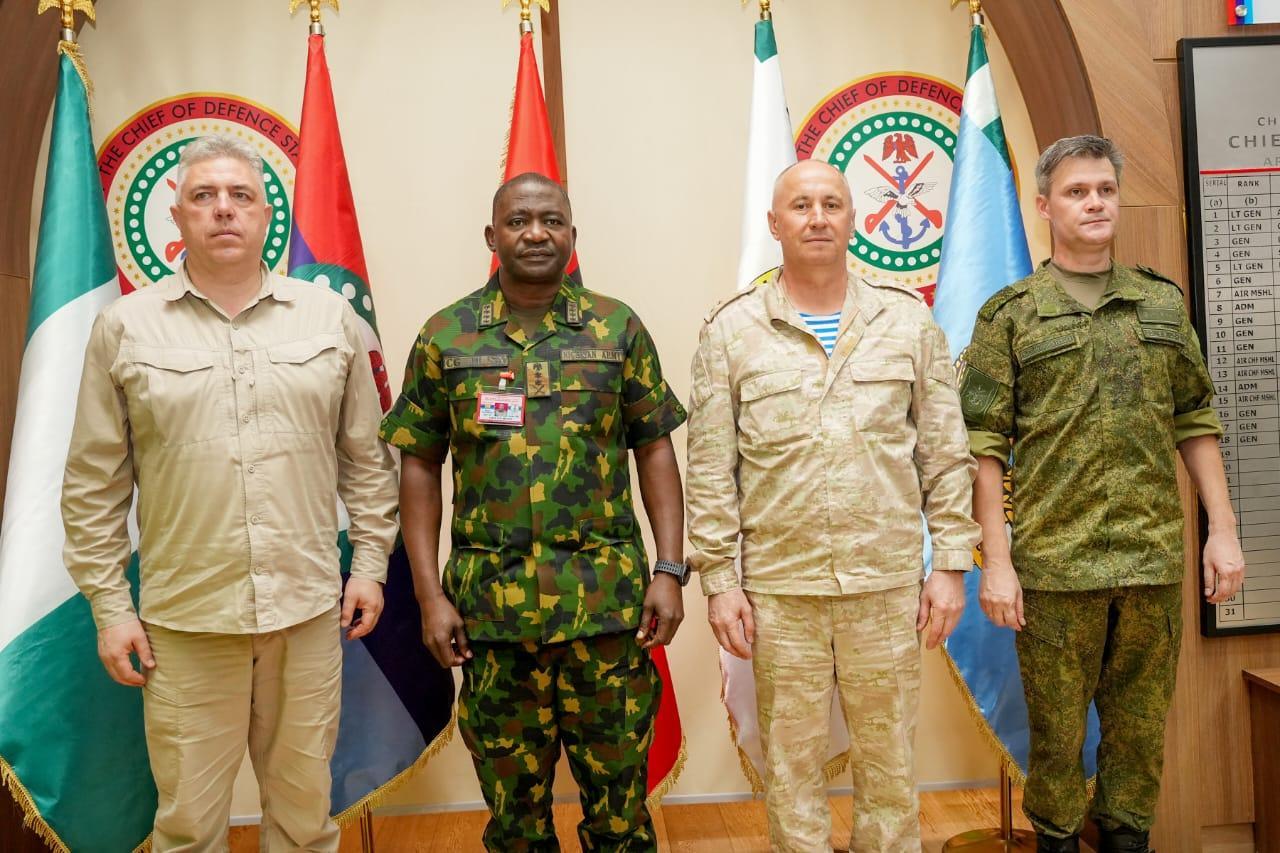By Abba Hamisu Sani
Africa-Press – Nigeria. Defence cooperation between Nigeria and Russia dates back to the 1960s. During the Nigerian Civil War (1967–1970), the Soviet Union provided critical support to the Nigerian government, aiding efforts to stabilize the country. This assistance marked a turning point in their bilateral relations.
In the post-war period, economic cooperation expanded as Nigeria opened its markets to Russian products and awarded contracts to Russian firms.
In recent years, military collaboration has further deepened with the signing of a Military-Technical Cooperation Agreement (MTCA)—a landmark in defence ties. Renewed in August 2021, the MTCA reaffirmed commitments to joint research, development, and production of defence technologies.
The agreement aims to go beyond arms supply to encompass collaborative development and manufacturing. As a result, Russia has provided training for Nigerian military personnel and supplied various military hardware.
Renewed Efforts to Strengthen Defence Ties
A major development occurred with the recent visit of Russia’s Special Presidential Representative and Deputy Minister of Defence, Lieutenant General Andrei Averianov, to Nigeria. He met with Nigeria’s Chief of Defence Staff, General Christopher Musa, marking a new chapter in military cooperation.
During the meeting, Averianov pledged military support, including advanced weaponry, technical expertise, and assistance in Nigeria’s counterterrorism operations. The Russian Federation reaffirmed its commitment to enhancing military cooperation, offering strategic counterterrorism knowledge and operational support to bolster Nigeria’s fight against insurgency.
Brigadier General Tukur Gusau, Director of Defence Media Operations, stated in an official release: “The visit marks a significant milestone in Nigeria–Russia defence relations.”
Nigeria as a Strategic Ally
Lieutenant General Averianov described Nigeria as a strategic ally and regional powerhouse. He noted that Russia has closely monitored Nigeria’s counterinsurgency efforts and is ready to provide comprehensive military assistance. Drawing on Russia’s experience in combating asymmetric threats involving 39 adversarial nations, he offered to share new counterterrorism techniques and supply the necessary hardware.
He emphasized the importance of global collaboration against terrorism, referencing evolving threats such as Boko Haram and Al-Qaeda.
He reaffirmed Russia’s commitment to securing the future of Nigeria and the broader region.
Nigeria’s Response
General Christopher Musa welcomed the Russian delegation on behalf of President Bola Tinubu and expressed gratitude for Russia’s support. He called for enhanced cooperation in intelligence sharing, equipment maintenance, logistics, and special operations training.
General Musa noted that several Russian-made platforms in Nigeria’s arsenal are currently unserviceable due to a lack of spare parts. He appealed for urgent assistance through the deployment of Russian technicians for on-site repairs or arrangements to return the equipment for servicing.
He also advocated for increased training exchanges, including the deployment of Russian instructors to Nigeria for specialized areas such as amphibious operations and fast-attack craft training.
Musa commended the Russian delegation for delivering equipment and dispatching experts, describing the gesture as a fulfillment of Russia’s strategic partnership commitment.
This high-level engagement underscores the deepening of military relations as Nigeria continues to battle insurgent threats in its northern regions.
Strategic Motives: Russia’s Growing Footprint in Africa
Dr. Munir Ibrahim, a defence analyst, described Averianov’s visit as part of Russia’s broader strategy to expand its presence in Africa.
He explained that this move is driven by rising opposition to French influence, China’s growing economic footprint, and Africa’s increasing geopolitical significance as an energy conduit.
Russia’s historical solidarity with African nations during the Cold War laid the foundation for renewed engagement. According to Dr. Munir, Russia is now leveraging its foreign policy tools—economic, military, and political—across the continent.
These tools include civil society organizations, private military companies, media networks, and an expanding array of commercial enterprises.
“This multifaceted strategy has elevated Russia’s influence in countries such as Libya, the Central African Republic, Mozambique, Mali, and Sudan,” Dr. Munir said. “Russia has become Africa’s leading arms supplier, particularly following recent coups in Sahelian countries like Mali, Niger, and Burkina Faso. Nigeria’s geopolitical relevance and economic weight make it a vital partner.”
Nigeria: One of Africa’s Leading Purchasers of Russian Arms
As global power dynamics continue to shift, the deepening defence and economic cooperation between Nigeria and Russia reflects a broader recalibration of international partnerships across Africa. With shared strategic interests and mutual security concerns, both nations appear poised to elevate their alliance beyond transactional exchanges toward a more robust, multifaceted partnership.
These recent high-level engagements signify not only a reaffirmation of historical ties but also a forward-looking vision prioritizing regional stability, technological collaboration, and strategic autonomy. As Nigeria navigates complex internal and external security challenges, its engagement with Russia could significantly shape the future of its defence strategy and foreign policy in a rapidly evolving geopolitical landscape.
For More News And Analysis About Nigeria Follow Africa-Press







